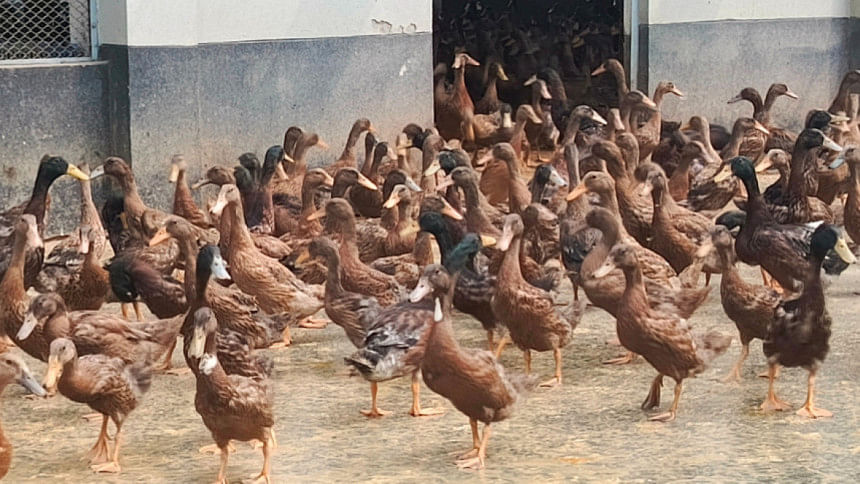Will our remittance warriors get government support to fulfil their entrepreneurial dreams?

The chief adviser of Bangladesh's interim government and the current high-level leadership have repeatedly been calling upon the nation's youth not to chase jobs, but to become entrepreneurs. This message is undoubtedly positive, progressive, and timely. The question, however, is: where do these initiatives come to a halt, and why?
In today's reality, many young men and women, relatives of migrant workers, and even people over 50, are stepping forward with their small savings and limited capital to start micro-ventures, such as poultry farming, fish cultivation, and vegetable production. Their goal is simple: to stand on their own feet and contribute to national productivity.
Especially noteworthy are the remittance warriors working abroad—those who toil day after day on foreign soil to send money home. They provide their families not only sustenance but also the opportunity to dream. In many such families, agricultural farms, poultry sheds, fish ponds, and coconut or date orchards have been established with the money sent by returning relatives. We, too, are part of this wave. Our family members have been quietly planting dreams in the soil of our villages for years.
But these dreams can be destroyed due to a fundamental lack of accountability.
Recently, a heartbreaking incident occurred at our family-owned multipurpose agricultural farm in Nahata union of Magura's Mohammadpur upazila. Over a hundred ducks and more than a hundred maunds of pond-cultivated fish died. Terrified, my family members made repeated calls to the local agricultural and livestock officials. But no one answered the phone or came to investigate.
This was not just a loss for one family; it was a significant social and economic setback.
The death of a farm and the inaction of the local administration indicate the potential facade behind our so-called "development."
Across the country, at the upazila level, we have agricultural offices, offices of the fisheries department, livestock services, youth development bureaus, and employment and training centres. All these have salaried officers, monthly allowances, vehicles, phone lines, and even training budgets. But are they doing any fieldwork? Many entrepreneurs claim they don't see these officials even once a year.
The most tragic part is this: those who sacrifice their lives abroad and send back money for their families, face an administration that is indifferent and silent when they need state support the most.
Is this what we call development? Is the wave of "development" limited only to megaprojects? Development means standing beside people at the grassroots, saving small entrepreneurs, and transforming remittance income into sustainable potential. If the state fails to do this, then calling upon youth to become entrepreneurs becomes nothing more than political rhetoric.
We who live abroad and still think of our country, support our families and keep the backbone of the nation strong with remittances—what do we get in return?
The questions are simple, the answers are hard. Must we turn to Dr Muhammad Yunus for answers? Because those who are responsible for running the country seem far too busy these days with politics and media showdowns.
Let me end by saying: development is not just about bridges, flyovers, and tunnels. It is about saving a small poultry farm, keeping fish from dying in a pond, and standing by a dreamer who has limited resources. Development means a responsible administration at the grassroots, proactive communication, accountability, and real support.
We demand an end to this national mismanagement immediately. We are waiting for an accountable state, effective transformation, and a true citizen-state partnership.
Rahman Mridha is a researcher, writer and former director of Pfizer in Sweden. He can be reached at [email protected].
Views expressed in this article are the author's own.
Follow The Daily Star Opinion on Facebook for the latest opinions, commentaries and analyses by experts and professionals. To contribute your article or letter to The Daily Star Opinion, see our guidelines for submission.

 For all latest news, follow The Daily Star's Google News channel.
For all latest news, follow The Daily Star's Google News channel. 



Comments